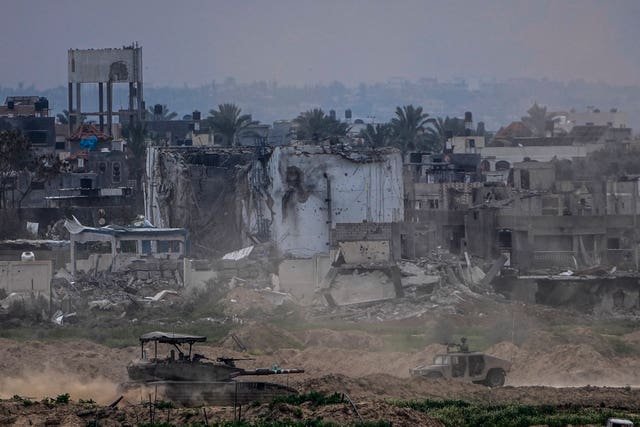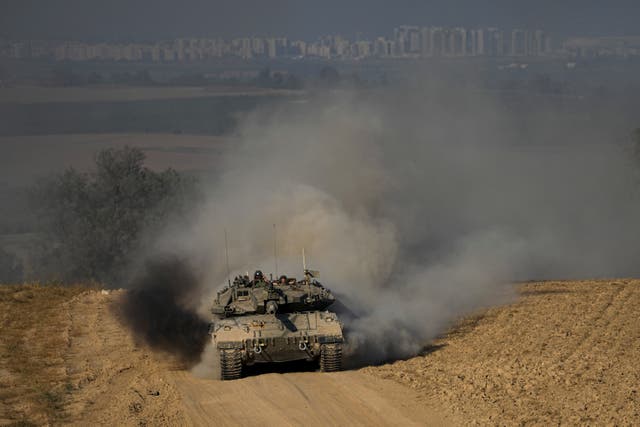Eight Israeli soldiers killed in southern Gaza
The deaths come after ceasefire negotiations have failed to find common ground between Israeli and Hamas.

Eight Israeli soldiers have been killed in an explosion southern Gaza in the deadliest attack on the country’s forces in months.
The deaths will likely fuel calls for a ceasefire and heighten Israeli public anger over ultra-Orthodox exemptions from the military.
In January, 21 Israeli troops were killed in a single attack by Palestinian militants in Gaza..
Saturday’s explosion took place in Rafah, a southern city that Israel has identified as Hamas’ last major stronghold. It sent in ground troops to the city in early May and has given no indication when the operation will end.

The military said the explosion happened just after 5am in the Tal al-Sultan area of Rafah. Rear Admiral Daniel Hagari, an Israeli military spokesman, said it was caused either by an explosive placed by Hamas or by an anti-tank missile.
“We need to defeat the Rafah Brigade of Hamas and we are doing this with determination,” he said.
Last month, Israel’s Supreme Court ordered an end to government subsidies for many ultra-Orthodox men who do not serve in the army.
A new draft law has not been passed but the coalition of Prime Minister Benjamin Netanyahu this week voted in favor of extending exemptions for religious men.
Although the vote was only procedural, it caused an uproar by being approved during a war in which hundreds of soldiers have died and many others remain inside Gaza or on the front lines against Hezbollah militants in Lebanon.
Israel’s coalition government contains a powerful bloc of ultra-Orthodox parties that have been long-time partners of Mr Netanyahu.

The war has also driven about 80% of the population of 2.3 million from their homes, and Israeli restrictions and ongoing fighting have hindered efforts to bring in humanitarian aid, fuelling widespread hunger.
Israel launched its campaign after Hamas and other militants stormed into Israel on October 7, killing some 1,200 people, mostly civilians, and taking around 250 hostage.
Over 100 hostages were released during a weeklong ceasefire last year in exchange for Palestinians imprisoned by Israel.
Hamas is believed to be holding around 80 hostages and the remains of another 40.
Months of ceasefire negotiations have failed to find common ground between Israeli and Hamas. On Wednesday, US Secretary of State Antony Blinken said that Hamas proposed changes to a US-backed plan, some of which he said were “workable” and some not.
Hamas has continually called for a permanent ceasefire and complete Israeli troop withdrawal from Gaza as part of any deal that would see the hostages released.
While the proposal announced by US President Joe Biden includes these two provisions, Hamas has expressed concern about whether Israel will commit to them.





